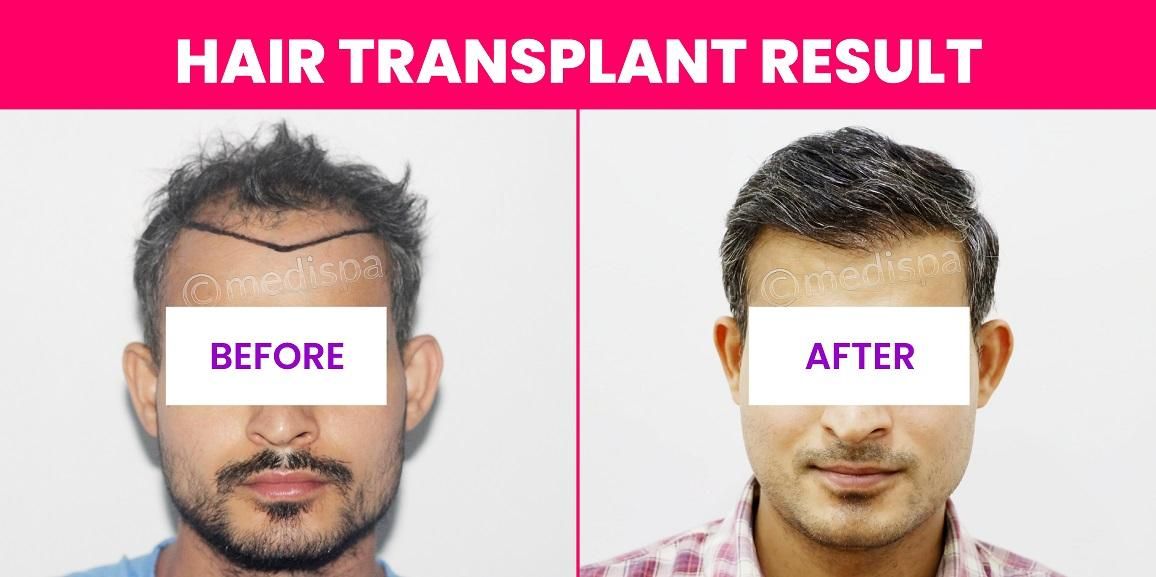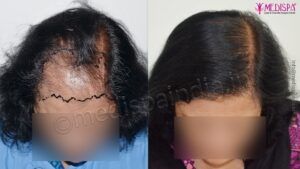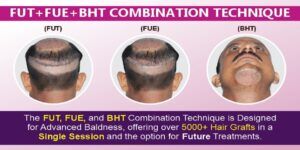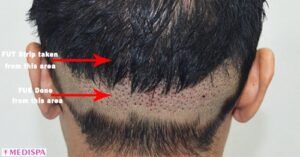
Individuals frequently harbor numerous concerns when contemplating a hair transplant, which can lead to uncertainty regarding the decision to proceed with the procedure. Many desire to envision the outcomes following a hair transplant. A common inquiry pertains to whether individuals experiencing hair loss who have grey hair are suitable candidates for the procedure.
At Medispa Hair Transplant Clinic, we frequently receive questions such as, “Is it possible to undergo a hair transplant if I have grey hair?” or “Will my transplanted hair eventually turn grey?” Unfortunately, there is limited information available on this topic. Therefore, we aim to provide a comprehensive discussion regarding the relationship between grey hair and hair transplants.
India, renowned for its historical monuments, intricate sculptures, and diverse culture, has become a destination that many in the Western world aspire to visit at least once in their lifetime. Additionally, with the rapid advancement of technology in the country, India is establishing a reputation for offering world-class medical facilities.
Hair transplant in India has significantly evolved, establishing the country as a prominent hub for hair transplant tourism. This procedure, akin to other forms of cosmetic surgery, requires not only exceptional surgical expertise but also an artistic sensibility to craft a natural-looking hairline. Indian surgeons, inheriting a rich artistic heritage, have earned recognition as some of the finest hair transplant specialists globally. Additionally, the affordability of hair transplant cost in India enhances its appeal.
“Medispa hair transplant clinic” located in Delhi and Jaipur is highly regarded for delivering outstanding hair transplant results. We prioritize providing accurate information to our patients and recommending options that serve their best interests. As a leading name among hair transplant clinics both in India and internationally, we are equipped with state-of-the-art facilities and adhere to the highest international standards in medical technology.
What is hair transplant?
Hair transplant is a cosmetic surgical procedure that is minimally invasive, involving the extraction of follicular grafts from a designated donor area, determined by the existing hair density. These extracted grafts are subsequently implanted into the targeted bald areas, with careful attention to the design of the hairline.
The techniques for hair transplantation are primarily categorized into two types, distinguished by their graft harvesting methods. The Follicular Unit Transplantation (FUT) technique entails the removal of a narrow strip of scalp tissue from the donor site, which is then sent to a graft separation room for the meticulous dissection of individual follicles along with a sufficient amount of surrounding tissue. These separated hair follicles are then implanted into the chosen bald recipient area. Conversely, the Follicular Unit Extraction (FUE) technique involves the extraction of individual hair follicular grafts using a specialized surgical instrument, followed by their transplantation into the recipient site.
A more recent method for addressing extensive baldness is the combination technique of FUT and FUE, which allows for the harvesting of over 4,000 grafts and provides additional advantages compared to either technique used independently.
Can we remove greying of hair with transplantation?
No, undergoing a hair transplant will not change the color of your hair. The hue of your existing hair is determined by genetics and cannot be modified through a hair transplant procedure. Consequently, this treatment will not eliminate gray hair. If the donor hair is gray or shows signs of graying, the transplanted hair will also be gray. In rare instances, hair restoration surgery may lead to the premature graying of transplanted hair; however, this does not impact the health or lifespan of the hair.
Can we perform hair transplant on grey hair?
It is a common misconception that grey hair is unsuitable for hair transplantation. In reality, grey hair can indeed be successfully transplanted. The belief that grey hair is unhealthy is unfounded; it is just as healthy as pigmented hair. Consequently, the success rates for transplanting both grey and pigmented hair are similar.
Today, it is not unusual to encounter individuals in their 20s or 30s who are experiencing greying hair. For these individuals, there is no need for concern, as they can confidently pursue hair transplantation with the expectation of achieving positive and natural-looking results.
Does my transplanted hair turn grey?
It is essential to understand that transplanted hair is not immune to the effects of aging. The hairs relocated from the donor site to the recipient site during a hair transplant retain the same genetic characteristics and qualities as those in the donor area. Consequently, the color of the transplanted hair will eventually diminish if melanin production in the donor region decreases, leading to greying.
Thus, do transplanted hair follicles undergo aging? The extent to which transplanted hair turns grey varies based on the individual and the characteristics of their donor hair. The behavior of transplanted hair mirrors that of the individual’s natural hair. Therefore, if the hair in the donor area begins to grey, the transplanted hair will also eventually follow suit.
Definitely natural look with hair transplant
The esteemed surgeon at Medispa clinic, Dr. Suneet Soni, possesses extensive experience in performing hair transplants on individuals with grey hair. He is renowned for his innovative approach and attention to detail. In planning a hair transplant, he considers various factors, including the patient’s age, facial structure, hair growth patterns, as well as the characteristics and color of the hair. Throughout the surgical process, he meticulously focuses on the angle, density, and placement of the grafts to achieve a personalized and natural appearance that suits each individual.
Post-procedure, we encourage you to maintain communication with us to ensure ongoing support and to monitor the progress of your hair growth. You are welcome to visit us at any time to benefit from a lifetime of professional hair care.







